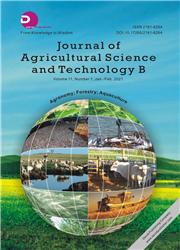Assessment of Informal Cross-Border Fish Trade in the Southern Africa Region: A Case of Malawi and Zambia
引用次数: 16
Abstract
Intra-regional fish trade has potential in addressing the region’s food and nutrition insecurity, as well as poverty reduction, by enabling movement of fish from countries of surplus to those with deficit. However, informal fish trade, just like all informal economic activities, has been overlooked and neglected in many national and regional policies, leading to obscurity of such an important part of the fisheries sector. This study examined the situation in the cross-border informal fish trade in order to deepen our understanding about the traders, the factors influencing the traders to use informal trade channels, the structure of the products traded and the challenges traders face, as well as propose policy direction to enhance the cross-border fish trade in the Southern Africa region. The study revealed that female traders dominated informal fish trade. In both Malawi and Zambia, an estimated 45,285.52 metric tonnes of fish valued at 82.14 million dollars and 102,263.9 metric tonnes of fish valued at 3.3 million dollars were informally traded. The key species involved in informal cross-border trade in Malawi and Zambia were the small pelagics, usipa (Engraulicypris sardella) from Lake Malawi and dagaa (Rastrineobola argentea) from Lake Tanganyika, respectively. It emerged from focus group discussions with informal fish traders and key informants’ interviews with border post fish inspection and revenue collection officials that traders are put off by the cross-border regulations. Therefore, it is important for countries in the Southern African Development Community (SADC) region to regularize and formalize cross-border trade, particularly in small pelagic fish species, since this species plays a great role in the livelihoods, food and nutrition security of many people in the region, especially the rural and urban poor. It is also important for governments to support processors and traders to improve the quality of fish being traded, and decentralize issuing of the import/export certificates and other cross-border support documents. Lastly, there is a need to establish informal fish trade monitoring systems to adequately quantify the volumes traded.南部非洲区域非正式跨界鱼类贸易评估:以马拉维和赞比亚为例
区域内鱼类贸易有可能解决该区域的粮食和营养不安全问题,并通过使鱼类能够从盈余国家转移到赤字国家来减少贫困。然而,与所有非正规经济活动一样,非正规鱼类贸易在许多国家和区域政策中被忽视和忽视,导致渔业部门如此重要的一部分被忽视。本研究考察了跨境非正规鱼类贸易的情况,以加深我们对贸易商、影响贸易商使用非正规贸易渠道的因素、贸易产品的结构以及贸易商面临的挑战的了解,并提出加强南部非洲地区跨境鱼类贸易的政策方向。研究表明,女性贸易商主导着非正式的鱼类贸易。在马拉维和赞比亚,估计有45285.52公吨鱼类进行了非正式贸易,价值8214万美元,102263.9公吨鱼类价值330万美元。马拉维和赞比亚参与非正式跨境贸易的关键物种分别是来自马拉维湖的小群岛乌西帕(Engraulicypris sardella)和来自坦噶尼喀湖的达加(Rastrineobola argentea)。从与非正式鱼类贸易商的焦点小组讨论以及关键线人与边境哨所鱼类检查和税收官员的访谈中可以看出,贸易商对跨境法规感到反感。因此,南部非洲发展共同体(南共体)区域各国必须使跨界贸易,特别是小型中上层鱼类的跨界贸易正规化和正规化,因为这种鱼类在该区域许多人,特别是农村和城市穷人的生计、粮食和营养安全方面发挥着重要作用。政府还必须支持加工商和贸易商提高交易鱼类的质量,并下放进出口证书和其他跨境支持文件的签发权。最后,有必要建立非正式的鱼类贸易监测系统,以充分量化贸易量。
本文章由计算机程序翻译,如有差异,请以英文原文为准。
求助全文
约1分钟内获得全文
求助全文

 求助内容:
求助内容: 应助结果提醒方式:
应助结果提醒方式:


